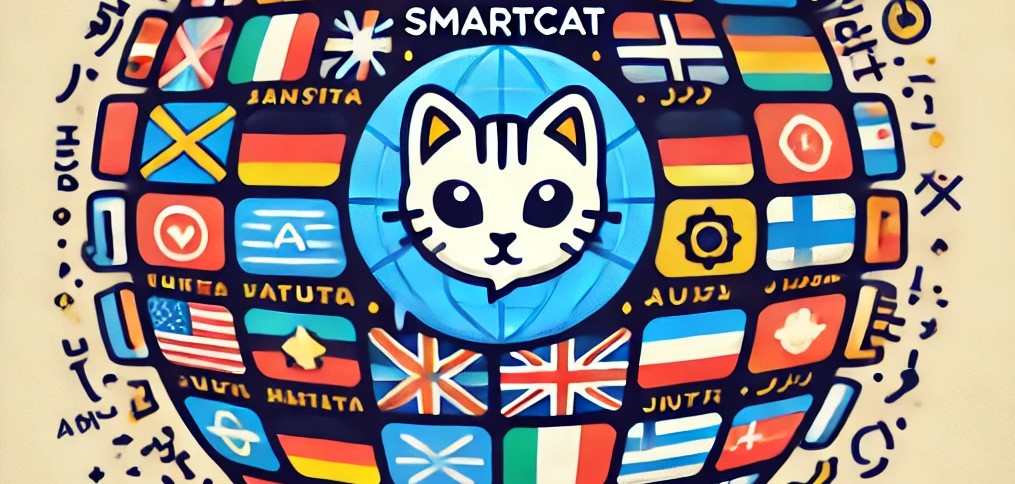Smartcat, a Boston-based AI translation platform, has raised $43 million in a Series C funding round led by Left Lane Capital, bringing the company’s total funding to $70 million. Founded in 2016, Smartcat offers a suite of automated translation tools designed for enterprise customers. Its AI-powered platform helps businesses translate written and spoken content into nearly 280 languages, catering to corporate clients including 20% of the Fortune 500.
Reinventing the Translation Model

Smartcat was founded by Ivan Smolnikov, who previously worked as a physicist and entrepreneur. The company’s mission is to streamline the traditional translation process, which has long been dominated by manual, time-consuming workflows. Instead of following the conventional translation agency model, Smartcat leverages AI to provide faster, scalable, and more cost-effective translation solutions for a wide range of use cases — from e-learning courses to software localization.
Smolnikov said the company’s tools help reinvent how organizations manage multilingual content, with a focus on improving efficiency without sacrificing quality. “Our AI platform supports a wide range of use cases for enterprise customers dealing with multilingual content,” he told TechCrunch.
How Smartcat Works

Smartcat’s platform offers a mix of AI-driven translations and human oversight. The company doesn’t train its own AI models but uses a “matching engine” to determine the best third-party model for each task, depending on the content and target language. For companies with specific needs, such as repetitive translations, Smartcat can fine-tune models, allowing AI to “memorize” commonly used phrases.
In recognition of AI’s limitations, Smartcat also provides access to a global network of professional translators and copy editors. This hybrid approach allows companies to choose between fully automated translations, human translations, or a combination of both — with AI handling initial translations and professionals offering editorial oversight for a fee.
Tackling Industry Challenges
In the past, some translators raised concerns about dishonest clients and non-payment issues on platforms like Reddit. Smolnikov assured that these problems have been addressed, and today translators on Smartcat can set their own rates, with a 2% to 8% service fee charged by the platform.
Smartcat primarily competes with traditional translation agencies and in-house translation teams, which have historically struggled with scalability. “Smartcat’s focus on language AI quality provides a practical [alternative],” Smolnikov noted. The platform offers enterprises a faster and more efficient way to manage large volumes of translations, eliminating much of the overhead associated with manual processes.
Investor Confidence and Market Outlook

The recent funding round, led by Left Lane Capital, signals investor confidence in Smartcat’s growth potential. The company plans to use the $43 million to expand its 200-person team, enhance product development, and increase marketing and sales efforts. According to Vinny Pujji, managing partner at Left Lane Capital, “Smartcat is uniquely positioned to compound the depth and quality of their product offering, continuing to lock in competitive advantages over time.”
The AI translation sector is projected to experience substantial growth. According to Grand View Research, the global market for machine translation solutions was valued at $978.2 million in 2022 and is expected to grow at a 13.5% compound annual growth rate (CAGR) through 2030. As AI technologies improve, Smartcat is well-positioned to capture a significant share of this expanding market.
The Future of AI Translation
While AI translation has made significant strides, it remains unlikely that it will fully replace human translators anytime soon. AI translations, though often accurate, still lack the nuances and cultural context that human translators bring to their work. AI models operate based on probability rather than lived experience, often producing translations that feel sterile or “textbook-like.”
For many businesses, however, accuracy and speed are all that’s required, making AI-driven tools like Smartcat attractive options for managing large volumes of content in multiple languages. As AI models improve and companies look for more scalable solutions, platforms like Smartcat could become indispensable for organizations with global operations.
In conclusion, Smartcat’s recent funding round positions the company for further growth in the competitive AI translation market. With a blend of AI technology and human expertise, Smartcat offers a scalable solution that meets the needs of enterprise clients while addressing the complexities of translation across different languages and cultures. As the industry evolves, Smartcat’s hybrid approach could prove to be a major asset in helping businesses navigate the challenges of global communication.






